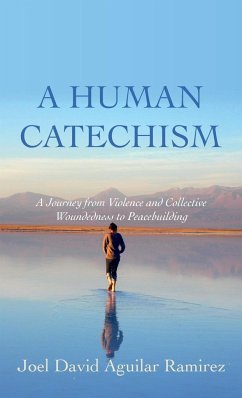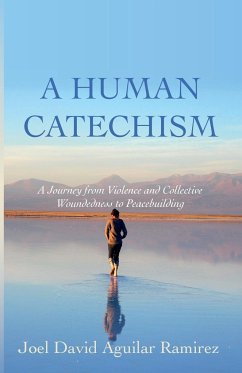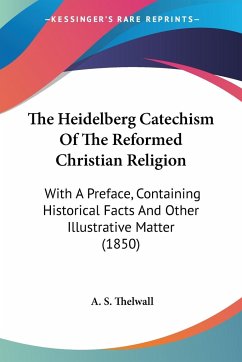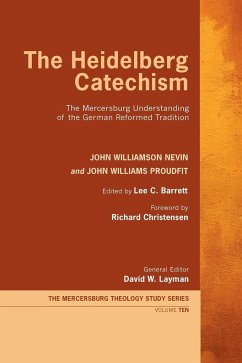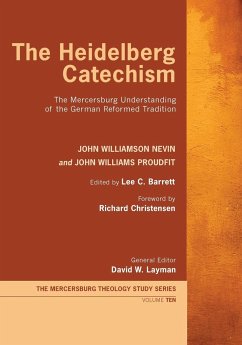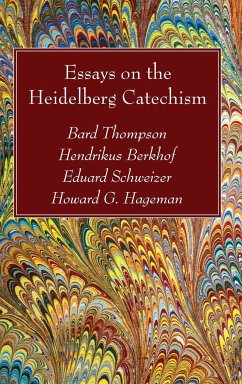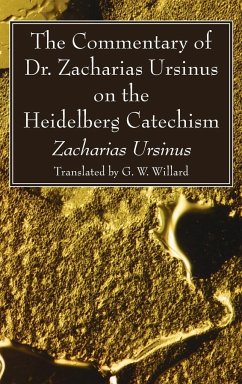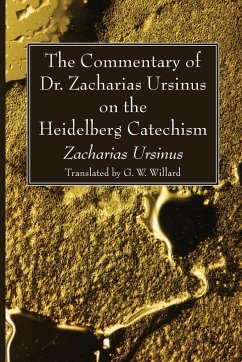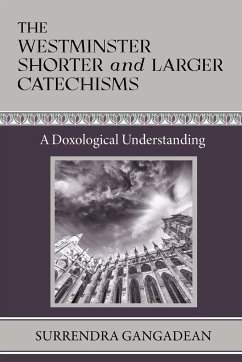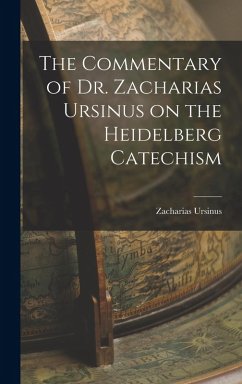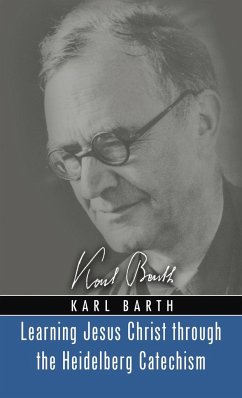
Learning Jesus Christ through the Heidelberg Catechism

PAYBACK Punkte
16 °P sammeln!
""The Heidelberg Catechism does not represent a different theological orientation... here the Reformed Church confesses the good news of Jesus Christ in. a joyful, thankful, free, personal way . . . Barth has caught this spirit in his commentary. To read it is to become acquainted with a side of Reformed Protestantism which all too often has remained hidden."" - from the Preface The two short studies by renowned theologian Karl Barth included here were first published in 1964, the 400th anniversary of the Heidelberg Catechism--a classical document of the Reformation Period. Students, ministers...
""The Heidelberg Catechism does not represent a different theological orientation... here the Reformed Church confesses the good news of Jesus Christ in. a joyful, thankful, free, personal way . . . Barth has caught this spirit in his commentary. To read it is to become acquainted with a side of Reformed Protestantism which all too often has remained hidden."" - from the Preface The two short studies by renowned theologian Karl Barth included here were first published in 1964, the 400th anniversary of the Heidelberg Catechism--a classical document of the Reformation Period. Students, ministers, laypersons, and theologians continue to find these essays helpful, for they provide not only an introduction to the Heidelberg Catechism, but also a brief, systematic presentation of Reformed theology in the 16th century and a glimpse of Barth's own theology on the 20th century. The first essay, ""Christian Doctrine According to the Heidelberg Catechism,"" is a question by question interpretation, commentary, and evaluation of the catechism. ""Introduction to the Heidelberg Catechism,"" the second essay, examines the three basic questions of the document: Who is the Comforter? Who is comforted? and How is comfort given and in what does it consist?





